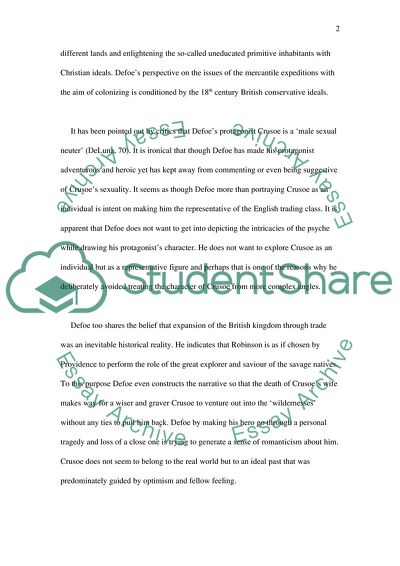Cite this document
(Crusoe as a Reflection of Defoes Beliefs Coursework, n.d.)
Crusoe as a Reflection of Defoes Beliefs Coursework. https://studentshare.org/literature/1722203-english-research-assignment
Crusoe as a Reflection of Defoes Beliefs Coursework. https://studentshare.org/literature/1722203-english-research-assignment
(Crusoe As a Reflection of Defoes Beliefs Coursework)
Crusoe As a Reflection of Defoes Beliefs Coursework. https://studentshare.org/literature/1722203-english-research-assignment.
Crusoe As a Reflection of Defoes Beliefs Coursework. https://studentshare.org/literature/1722203-english-research-assignment.
“Crusoe As a Reflection of Defoes Beliefs Coursework”. https://studentshare.org/literature/1722203-english-research-assignment.


